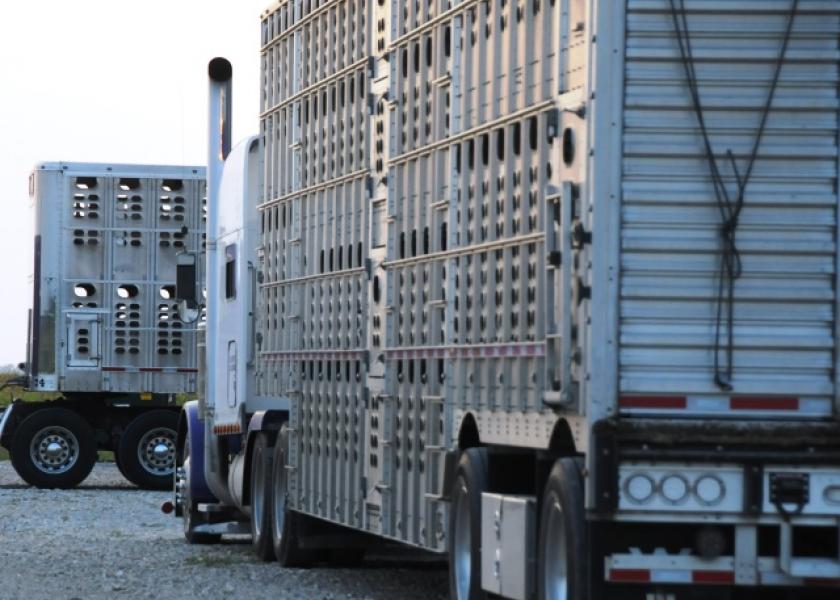Missouri Passes New Felony Law to Protect Livestock Transport

Animal activists look for ways to disrupt the livestock industry, especially during transport.
Unfortunately, some get away with it. For example, two animal rights activists “rescuing” two chickens from a Foster Farms truck in Livingston, Calif., in September 2021, were found not guilty of misdemeanor theft by a Merced County jury.
However, in the state of Missouri, those interfering with the shipping of livestock will now face a felony offense, following Missouri Gov. Mike Parson's approval of the bill, "Offense of Interference with Transportation of Livestock," as part of a larger public safety package.
The bill, originally sponsored by Missouri’s Rep. Brenda Shields, criminalizes any person who knowingly stops or otherwise interferes with a motor vehicle transporting livestock; provokes or disturbs livestock when the livestock is confined in a motor vehicle; or puts or places a substance on the livestock that affects its health or use, according to the legislative documents.
Activity of this kind will result in a class E felony charge for the first offense and a class C felony for any subsequent offense. Additionally, felony charges may include prison time or a fine up to $10,000, depending on the case. Previous punishment included a misdemeanor charge and a $1,000 fine.
Fueled by issues in transferring hogs within her district that includes a large pork processing plant, Shields explained to a local news source that trucks were being slowed down or stopped, tainted water was thrown into the truck [trailer] and hypodermic needles were put into the loaded hogs.
“[Animal Activist] Groups like Direct Action Everywhere (DXE) have small pockets of supporters across the country that are willing to mobilize for the cause, and the ‘lead organizers’ have also shown they’re willing to travel anywhere to conduct ‘investigations’ and demonstrations,” explains Hannah Thompson-Weeman, president of Animal Agriculture Alliance, in a PorkBusiness.com article.
From a quality, reliability and food supply standpoint, Shields says consumers expect safe protein and processors expect animals that haven’t been tampered with. Specifically, pigs go through the entire process to get to the plant, making sure the pig is clean and free of any contaminants, she adds. However, if the processor comes across one of these hypodermic needles, production halts immediately until the source of the needle is identified. The entire line then must be cleaned and valuable production time is lost.
It’s been proven over again that these animals are transported in a very safe way with very little stress, Shields adds, and the people who tamper with the process, often animal rights proponents, are causing unnecessary pressure and interruptions to the livestock industry.
Read More:
Animal Activists Are Waging War in Your Backyard
Animal Activist and Former Baywatch Star Found Not Guilty in ‘Open Rescue’







